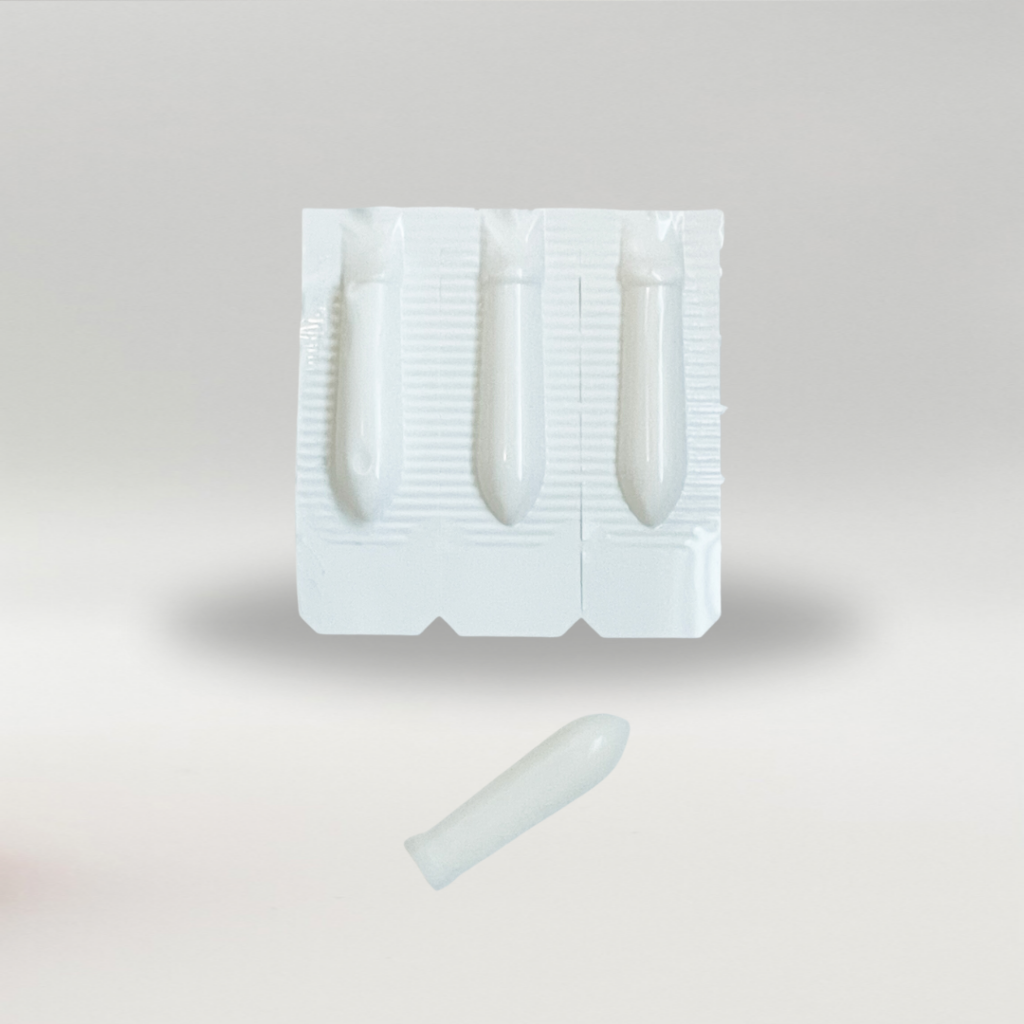Swelling and irritation in the digestive tract can make daily activities uncomfortable and draining, especially for people living with Inflammatory Bowel Disease (IBD). Mesalamine, a medication that has been used to address intestinal inflammation, may help soothe the gut lining and reduce flare-ups by slowing the activity of inflammation-causing agents in the intestines.
When IBD symptoms are not well-controlled, anal fissures may develop as a complication, often causing painful bowel movements. Nifedipine, a calcium channel blocker, may help relieve pain and support healing by relaxing the anal sphincter and improving blood flow to the affected area.
At Morgan Compounding Pharmacy, we understand that every patient has unique needs. That’s why we offer customized formulations of mesalamine and nifedipine in specific strengths that aren’t available commercially. By working with gastroenterologists, our pharmacists prepare each prescription with precision — helping patients achieve comfort and relief through personalized care.
Most Common Types of Inflammatory Bowel Disease
About 60 to 70 million people in the United States live with a digestive disorder. Among these conditions, Inflammatory Bowel Disease (IBD) — which includes Ulcerative Colitis and Crohn’s Disease — impacts an estimated 2.4 to 3.1 million US adults.

Ulcerative Colitis
Ulcerative Colitis (UC) is a condition that leads to swelling and sores in the lining of the colon and rectum. It comes and goes in cycles of flare-ups and remission.
- Frequent bowel movements and stomach pain make daily tasks and social activities more difficult to manage.
- Medical care aims to control inflammation, often starting with medications like mesalamine.
- Addressing UC early helps prevent complications, such as anemia, dehydration, or colon cancer.
“Mesalamine (mesalazine) is a 5-aminosalicylic acid compound that is the first-line treatment for patients with mild-to-moderate UC.”
Crohn’s Disease
Crohn’s disease is an inflammatory condition that affects the digestive tract, most often the end of the small intestine (ileum) and the start of the colon. It causes patches of swelling that can reach deep into the bowel wall.
- Flare-ups can cause stomach pain, diarrhea, fatigue, and weight loss. These symptoms make it hard to work, enjoy meals, or take part in social activities.
- The goal is to control inflammation and prevent flare-ups. Doctors may use anti-inflammatory drugs, corticosteroids, and immunomodulators, among others.
- Early diagnosis and care may reduce the risk of complications, including bowel narrowing, fistulas, or poor nutrient absorption.
Other Common Gastrointestinal Conditions
Although Anal Fissures and Irritable Bowel Syndrome (IBS) may not cause the same level of inflammation as IBD, they may still lead to significant discomfort in everyday activities. Thus, careful management and lifestyle support help reduce symptoms.
Anal Fissures
An anal fissure is a tear in the skin around the anus that causes pain and bleeding during bowel movements, often from constipation or straining. In the US, practitioners diagnose around 240,000 to 342,000 new cases annually.
- The pain can make sitting or using the bathroom uncomfortable, and fear of bowel movements may worsen constipation and slow healing.
- Most fissures heal with adequate fiber intake, good hydration, and warm sitz baths. For persistent cases, nifedipine ointment may help relax the muscle and improve blood flow, promoting faster healing.
Irritable Bowel Syndrome
Irritable Bowel Syndrome (IBS) is a digestive disorder that can cause abdominal pain, bloating, and changes in bowel habits like constipation or diarrhea.
- IBS makes work, travel, and social activities challenging due to unpredictable symptoms and frequent bathroom needs.
- Medical care focuses on diet changes, stress management, and symptom control. A low-FODMAP diet, hydration, and medications, including supplements, may help manage symptoms.

Mesalamine: What It Is and How It May Work
Mesalamine is an anti-inflammatory medication that helps reduce irritation and swelling in the intestines. By slowing down the activity of pro-inflammatory chemicals in the gastrointestinal tract, it may:
- Reduce pain, bleeding, and diarrhea
- Control flare-ups
- Maintain remission
“Mesalazine suppositories are recommended and widely used as the standard therapy in induction and maintenance of remission for proctitis.”
Potential Advantages of Compounded Mesalamine
Compounded mesalamine offers several potential advantages, including:
- Faster symptom relief
- Lower systemic side effects
- Compounded forms such as suppositories help those who are unable to tolerate pills
Nifedipine: What It Is and How It May Work
Nifedipine is a calcium channel blocker and may be prescribed to address anal fissures. By helping relax muscles and improve blood flow, it may:
- Ease the pain during and after bowel movement
- Promote tissue healing
- Reduce strain to help the fissure close
“Although oral nifedipine can reduce symptoms and signs of anal fissure, topical nifedipine has a superior role for anal fissure treatment with higher healing rate and lower side effects.”
Potential Advantages of Compounded Nifedipine
Compounded nifedipine offers potential advantages, such as:
- Customized base and strength
- Optimized delivery for localized care
- Lowered systemic exposure
- Tailored tolerability
Why Patients and Prescribers Trust Morgan Compounding Pharmacy
At Morgan Compounding Pharmacy, we know that no two patients are alike. That’s why we focus on creating high-quality compounded medications, such as mesalamine suppositories and nifedipine ointment, designed to match each individual’s needs.
What Sets Us Apart:
- We utilize state-of-the-art testing to verify the stability, potency, and uniform concentration of every customized prescription we prepare.
- We work with prescribers who specify the exact need and leverage our expertise to formulate the appropriate dose, delivery, or combination not commercially available.
- We prioritize the delivery method and formulation to promote patient comfort and satisfaction.
- Our facilities adhere to the highest standards to ensure that every medication meets strict quality requirements.
How to Use the Morgan Compounding Pharmacy Rx Order Forms (For Georgia Prescribers)
Morgan Compounding Pharmacy in Alpharetta, Georgia, offers a pre-structured Gastrointestinal & Colon Rectal Rx Order Form for gastroenterologists.
Step-by-Step Instructions
- 1. Request Access to the Rx Form
Getting started is easy. Request access from our team, and we’ll provide a password to download all available prescription order forms. The Gastrointestinal & Colon Rectal Rx Order Form allows Georgia gastroenterologists to prescribe compounded medications for their patients.
- 2. Complete Patient and Prescriber Information
Provide all required details to ensure proper documentation and compliance:
- Patient: Name, date of birth, allergies, address, and contact information.
- Prescriber: Name, DEA and NPI numbers, address, and office contact information. This supports accurate record-keeping and traceability.
- 3. Select the Medication
Check the prescription you wish to compound and the desired formulation:
- For anal fissure:
- Nifedipine 0.3% ointment or Nifedipine 0.3% / Lidocaine 1.5% ointment.
- Input personalized percent formulation for Nifedipine or Nifedipine / Lidocaine ointment.
- Select quantity in 30 grams, 40 grams, or personalized amount in grams.
- Confirm SIG.
- For Crohn’s disease, proctitis, UC, and IBS:
- Mesalamine 900-mg suppository
- Input personalized milligrams of mesalamine suppository.
- Select quantity in 30, 60, or personalized amount.
- Confirm SIG.
- For anal fissure:
- 4. Prescriber Authorization
Review and authorize the prescription by initialing and signing the form. This confirms clinical necessity and ensures the compounded medication aligns with Georgia compounding law and patient chart documentation.
- 5. Submit the Completed Form
- Fax: (770) 809-5048
Once received, the Morgan Compounding Pharmacy team will process the prescription promptly. Our pharmacists will contact you if any clinical or regulatory concerns arise.
Get in Touch With Our Team
To help optimize your patients’ experience, contact us for assistance. We’re here to provide customized medications that support their comfort, regimen goals, and specific needs.
References
- Gerbasi, L., & Ashurst, J. V. (2025, September 15). Anal fissures. In StatPearls [Internet]. StatPearls Publishing. Link
- Ham, M., & Moss, A. C. (2012). Mesalamine in the treatment and maintenance of remission of ulcerative colitis. Expert Review of Clinical Pharmacology, 5(1), 113–123. Link
- Golfam, F., Golfam, P., Golfam, B., & Pahlevani, P. (2014). Comparison of topical nifedipine with oral nifedipine for treatment of anal fissure: A randomized controlled trial. Iranian Red Crescent Medical Journal, 16(8), e13592. Link
- Watanabe, M., Nishino, H., Sameshima, Y., Ota, A., Nakamura, S., & Hibi, T. (2013). Randomised clinical trial: Evaluation of the efficacy of mesalazine suppositories in patients with ulcerative colitis and active rectal inflammation. Alimentary Pharmacology & Therapeutics, 38(3), 264–273. Link

